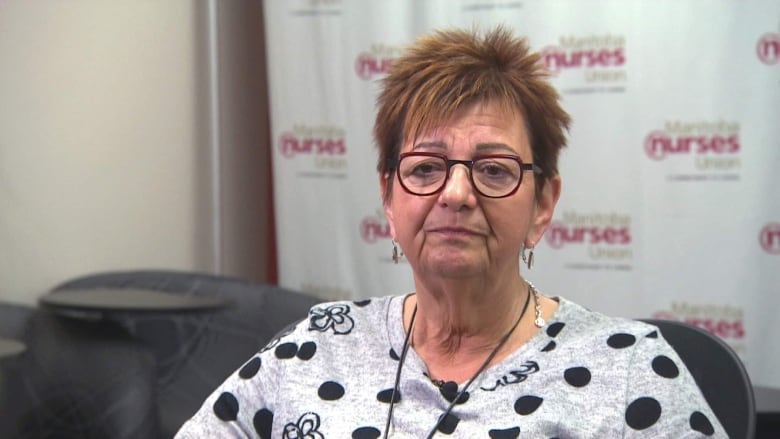Patient suicide, unneeded surgeries among year's worth of critical incidents released in Manitoba
Late release of regular reports part of government's 'worrying' transparency trend, ethicist says

A patient who needed a second biopsy after their original sample was left out overnight, someone who killed themself while getting health-care services and several people who got surgeries they didn't actually need are among a year's worth of critical incident reports recently released by the province.
The reports detail incidents involving serious and unintended harm to people using Manitoba's health-care services. While they're typically released every three months, the most recent batch posted on the province's website covers incidents stretching from April 2021 through the end of March 2022.
Therelease of that information is "better late than never," an ethics expert says but coupled with the fact Manitoba's critical incident reports have also gotten less detailed over the years, the province's approach to sharing that data raises questions.
"I think what you can see is that there is a pattern here from the government," said Neil McArthur, director of the University of Manitoba's Centre for Professional and Applied Ethics.
"We've had a couple of different cases where the government has released data very late or has refused to release it at all, and where they seem to be working against the objective of transparency in the health-care system, which I think is worrying."
McArthur said that pattern includes the fact that the province has yet to release final data on the number of overdoses in Manitoba in 2022.
A provincial spokesperson said those numbers will be posted soon. It takes time to finalize and verify the data before it gets posted, which usually happens at the start of the second quarter of the fiscal calendar, the spokesperson said in an email.
They added that while posting critical incident reports has a delay of a year to allow time for a review and recommendations to happen, there was a further delay in posting the reports for the first three quarters of 2021-22 during a review of procedures around posting critical incidents.
The province will now return to its quarterly posting schedule, the spokesperson said.
They also said while personal health information has always been removed from the reports to protect privacy, the amount of detail included in critical incident reports was adjusted in 2019 "to increase safeguards against sharing potentially identifying information of patients and professionals."
McArthur said while critical incident information isn't the only data that's important in helping the public understand what's happening in Manitoba's health-care system, it's still an important piece of the puzzle.
"It shouldn't be ignored. I think we should pay attention to it," he said.
Incidents linked to staff shortages: nurse union
The recent reports also include many incidents the head of the Manitoba Nurses Union say were preventable and dozens likely linked to ongoing staffing shortages.
Those include infections acquired in hospital, falls, medication errors and pressure injuries, which can be caused by patients not being turned over in their beds often enough.
"All of those are incidences that happen when you don't have enough staff to keep eyes on a patient and to be doing those assessments," president Darlene Jackson said.
"Nurses are expected to be providing more service with less staff. And as a result of that, what happens is you can only spread yourself so thin and you can't be in more than one place at a time."
Jackson said there's also very specific criteria for what kinds of incidents qualify as critical incidents, which likely means there are even more incidents caused by hospital staff shortages that don't show up in the reports.

"I think things that don't qualify as critical incidents are happening fairly frequently," she said.
"There [are] just not enough bodies in the system to adequately provide the care our patients need and that is across the board."
The reports also include a case where a patient with an acute mental health condition experienced serious harm during a gap in monitoring, one where someone was seriously burned by a baseboard heater and two incidents where stroke protocols weren't used for people who showed symptoms of having one.
Uzoma Asagwara, the Opposition NDP's health critic, said the province's delayed release of the latest critical incident reports without any announcement suggests an attempt to avoid highlighting the data.
"They don't want to be accountable, they don't want to be transparent and they don't want to have to face Manitobans in regards to what's happening under their watch in the health-care system," said Asagwara, the MLA for Union Station.
"This is a government who has no plan or strategy to fix the mess they caused in our health-care system and they don't want to have to face the Manitobans that they've been hurting with their decisions."
If you or someone you know is struggling, here's where to get help:
- Talk Suicide Canada: 1-833-456-4566 (phone) | 45645 (text between 4 p.m. and midnight ET).
- Kids Help Phone: 1-800-668-6868 (phone), live chat counselling on the website.
- Canadian Association for Suicide Prevention: Find a 24-hour crisis centre.
- This guide from the Centre for Addiction and Mental Health outlines how to talk about suicide with someone you're worried about.
If you're worried someone you know may be at risk of suicide, you should talk to them about it, says the Canadian Association for Suicide Prevention. Here are some warning signs:
- Suicidal thoughts.
- Substance abuse.
- Purposelessness.
- Anxiety.
- Feeling trapped.
- Hopelessness and helplessness.
- Withdrawal.
- Anger.
- Recklessness.
- Mood changes.
With files from Nathan Liewicki












_(720p).jpg)


 OFFICIAL HD MUSIC VIDEO.jpg)
.jpg)



























































































